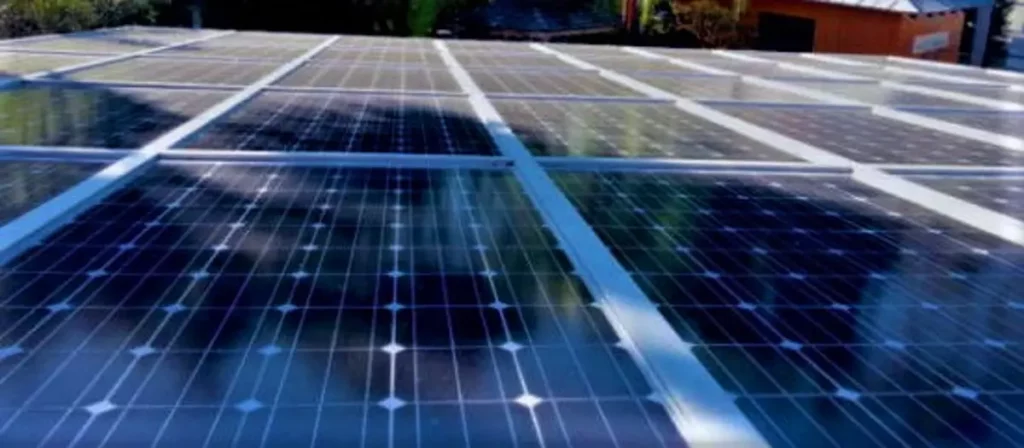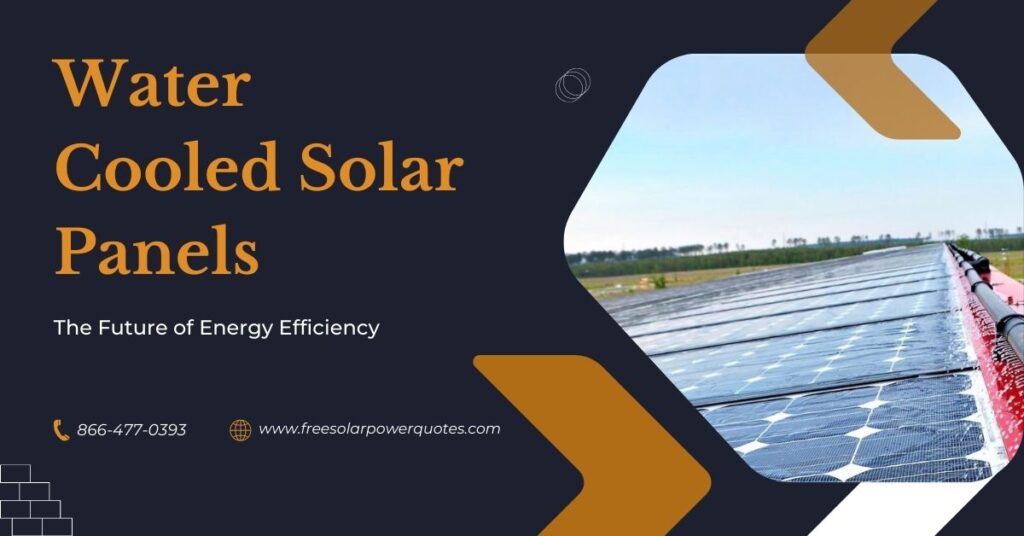Solar panels have become a popular renewable energy source over the last few years, offering a clean and sustainable way to generate electricity. However, one of the main challenges of using solar panels is their susceptibility to overheating, which can significantly reduce their efficiency and lifespan. Water-cooled solar panels have emerged as a promising solution to address this issue. This article will explore the concept of water cooled solar panels and their benefits.
What are Water Cooled Solar Panels?
Water cooled solar panels are a type of solar panel equipped with a water circulation system to cool down the panels and prevent them from overheating. The system involves a series of water pipes that run through the back of the solar panels, allowing water to flow continuously and dissipate the heat that builds up during operation.
How do Water Cooled Solar Panels Work?
Water cooled solar panels work by circulating water through a series of pipes that run along the back of the panels. The water absorbs the heat generated by the solar cells and carries it away, preventing the panels from overheating. The water is then circulated back to the cooling system, which is cooled down and ready to be used again.
The water cooling system can be integrated into the solar panel structure in two ways. In some designs, the cooling pipes are attached to the back of the solar cells, which are then covered with a protective layer. In other designs, the cooling system is integrated into the solar panel’s frame, with the pipes running along the back of the frame.
Benefits of Water Cooled Solar Panels
Increased Efficiency
One of the main benefits of water cooled solar panels is that they can operate at higher efficiencies than traditional solar panels. The cooling system prevents the panels from overheating, which can significantly reduce their efficiency. Water cooled solar panels can generate more electricity per unit area by keeping the panels at a lower temperature.
Longer Lifespan
Overheating can also reduce the lifespan of solar panels. The heat generated by solar cells can cause thermal stress, leading to cracks and other forms of damage. Water cooled solar panels can extend the panels’ lifespan by reducing heat and preventing damage caused by thermal stress.
Better Performance in High-Temperature Environments
Water cooled solar panels are particularly useful in high-temperature environments where traditional solar panels may not perform well. In hot climates, solar panels can reach temperatures above 70 degrees Celsius, which can significantly reduce their efficiency. Water cooled solar panels can operate at lower temperatures, making them more effective in such environments.
Reduced Maintenance Costs
Water cooled solar panels require less maintenance than traditional solar panels. The cooling system helps to prevent dust and other contaminants from accumulating on the surface of the panels, reducing the need for cleaning. Additionally, the water used in the cooling system can be recycled, reducing the cost of water usage.
Reduced Environmental Impact
Water cooled solar panels are a more sustainable option than traditional solar panels. By reducing the heat generated by solar cells, water cooled solar panels can operate more efficiently and require less energy to produce the same amount of electricity. Additionally, the water used in the cooling system can be recycled, reducing the need for fresh water.
Check this guide of ours about how solar energy can help reduce pollution.
Challenges of Water-Cooled Solar Panels
Increased Complexity
Water cooled solar panels are more complex than traditional ones, making them more difficult to install and maintain. The cooling system requires additional piping and components, which can increase the cost and complexity of the installation.
Water Availability
Water cooled solar panels require a continuous supply of water to operate effectively. Water cooled solar panels may not be a practical option in areas where water is scarce or expensive. However, water cooled solar panels can be a sustainable and efficient solution in regions with abundant water resources.
Freezing Temperatures
In areas with freezing temperatures, the water in the cooling system can freeze and damage the panels. To prevent this, the water in the system needs to be replaced with an antifreeze solution or drained during the winter months.
Increased Cost
Water cooled solar panels are typically more expensive than traditional solar panels due to the additional components and complexity involved in the cooling system. However, the increased efficiency and longer lifespan of water cooled solar panels can offset the initial cost over time.

Applications of Water Cooled Solar Panels
Water cooled solar panels are suitable for a variety of applications, including:
Residential Solar Energy Systems
Water cooled solar panels can be used in residential solar energy systems to provide a clean and sustainable source of electricity for households. They are particularly useful in hot climates where traditional solar panels may not perform well.
Commercial Solar Energy Systems
Water cooled solar panels can also be used in commercial solar energy systems to provide a sustainable and cost-effective source of electricity for businesses.
Agriculture
Water cooled solar panels can be used in agricultural applications, such as greenhouse heating and irrigation, to provide a sustainable energy source and reduce water usage.
Industrial Processes
Water cooled solar panels can be used in industrial processes to provide a sustainable energy source for manufacturing and other industrial applications.
Conclusion
Water cooled solar panels offer a sustainable solution to the challenges of overheating and efficiency loss that traditional solar panels face. They operate at higher efficiencies, have a longer lifespan, and perform better in high-temperature environments. However, the increased complexity and cost of water cooled solar panels may make them less practical in some applications. Overall, water-cooled solar panels have the potential to be a significant contributor to the transition toward sustainable and renewable energy sources.
Get your free solar power quote today and start saving! Contact us at freesolarpowerquotes.com to take the first step towards sustainable energy.
FAQS
What are liquid cooled solar panels?
Liquid-cooled solar panels, also known as water-cooled solar panels, are a type of solar panel that utilizes water to cool down the cells, allowing for greater efficiency and longer lifespan.
How do water cooled solar panels work?
Water cooled solar panels work by circulating water through a system of pipes attached to the solar cells. The water absorbs the excess heat and carries it away from the cells, preventing damage and increasing their efficiency.
What are the advantages of water-cooled solar panels?
The advantages of water cooled solar panels include increased efficiency, longer lifespan, reduced maintenance costs, and decreased risk of cell damage due to overheating.
Are there any disadvantages to water-cooled solar panels?
Some of the disadvantages of water cooled solar panels include higher installation costs, increased complexity of the system, and the need for regular maintenance to ensure the system is working properly.
What types of cooling systems are used for solar panels?
Several types of cooling systems are used for solar panels, including air-cooling, liquid-cooling, and hybrid systems that combine air and liquid cooling.
How much does a solar-powered cooling system cost to install?
Solar panel cooling systems range in price from quite inexpensive to extremely high, depending on factors like size and complexity. The typical price range is several thousand dollars up into the tens of thousands.
What are the environmental benefits of using water cooled solar panels?
Water cooled solar panels have environmental benefits such as water conservation and reduced energy demand. The system requires less energy to operate, and the water used for cooling can be recycled.
What is the future of water cooled solar panels?
As solar energy becomes more widely adopted, water-cooled solar panels are likely to become more popular due to their increased efficiency and reduced environmental impact. Additionally, as the technology develops, the installation and maintenance costs will likely decrease, making it more accessible to a wider range of consumers.
Can I use water to cool solar panels?
Yes, water can be used to cool solar panels. In fact, water cooling systems are a popular method for cooling solar panels and are often used in large-scale solar energy projects.
How do solar panels cool water?
Solar panels cool water by circulating it through a series of pipes that are placed on the back of the solar panels. Water flowing via pipes absorbs heat from solar panels and transfers it away, minimizing overheating. The heated water is then circulated back to a cooling system, which can be cooled down before recirculating it to the solar panels.

